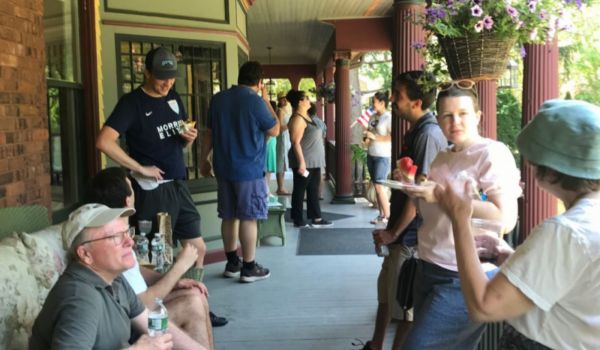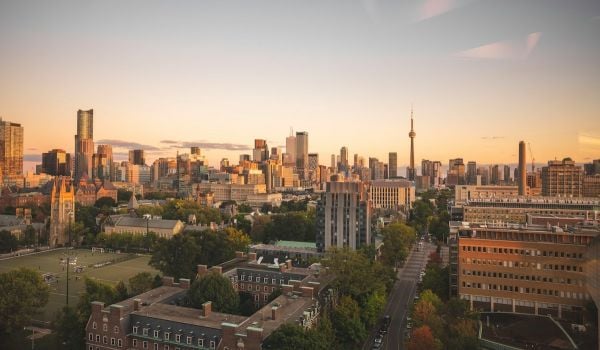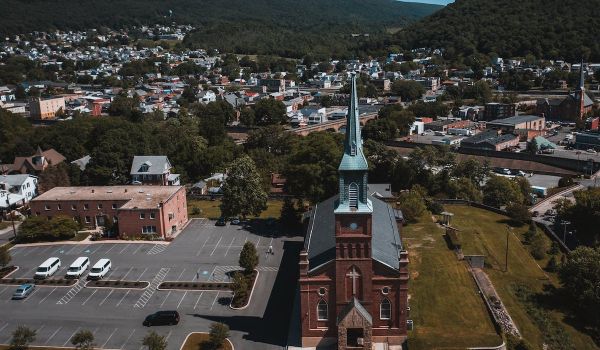With the U.S. in the worst housing affordability crisis of our lifetimes, lawmakers at all levels of government are increasingly feeling pressure to act. In March, President Biden unveiled a housing plan featuring two new tax credits, while state and local leaders across the country are proposing policy measures to protect vulnerable residents and increase the supply of affordable housing.
But these moves pale in comparison to what’s happening in New Jersey. In March, the state enacted wide-ranging legislation that will increase affordable housing over the next decade to address the state’s deficit of over 200,000 affordable homes. The new law ensures New Jersey will have the strongest framework in the country to require affordable homes in historically exclusionary communities.
Many U.S. states could benefit from a framework like New Jersey’s, which obligates each community to change its zoning to provide affordable housing.
New Jersey’s model for ending exclusionary zoning
The use of exclusionary zoning has a long history in the U.S. and in New Jersey. Once explicit racial zoning laws were deemed unconstitutional by the U.S. Supreme Court in 1917, segregationists had to find new ways to exclude people of color from their towns. The rise of exclusionary zoning laws began around this time.
By limiting the size and type of buildings that can be built in a particular locality, exclusionary zoning limits the ability of lower-income people and people of color to reside in certain communities. This creates a vicious cycle in which certain populations are forced to live in more segregated areas with limited access to quality education, health care and other services. Generations of exclusionary policies have worsened the national housing affordability crisis by artificially driving up the price of suburban housing.
In New Jersey, however, exclusionary zoning was declared unconstitutional by the state’s Supreme Court nearly 50 years ago in the groundbreaking Mount Laurel decision, which legally mandates that every municipality in the state provide its “fair share” of the region’s affordable housing.
The “Mount Laurel Doctrine,” as it has become known, has helped dismantle patterns of segregation and has promoted greater economic integration in New Jersey.
Since 2015, when the New Jersey Supreme Court reinvigorated the Mount Laurel Doctrine after decades of political obstruction, New Jersey has nearly doubled the rate of affordable housing production. The state is producing more new multifamily housing than ever before — over 70,000 affordable homes since 2015, including 20,000 with long-term affordability guarantees — and neighborhoods where new homes have been built have become more integrated. Much of this new housing is close to public transportation and redevelops older office parks or shopping centers that are no longer viable.
Last year, New Jersey permitted far more new homes than New York — despite having half the population. With lawmakers in many states looking to get rid of exclusionary zoning to one degree or another, the Mount Laurel Doctrine provides a comprehensive, replicable model for how to do that.
Enforcement is key
As with all areas of civil rights, enforcement is essential. While New Jersey still needs more affordable homes to make up for lost time, affordable housing production is expected to increase as a result of the newly signed law, which puts some teeth behind the Mount Laurel Doctrine.
Historically, the Mount Laurel Doctrine was primarily driven by the courts — but the new law was driven by legislative and gubernatorial leadership, demonstrating an ongoing shift in the politics around affordable housing.
New Jersey’s new law makes it harder for wealthy towns to stymy new developments and sets a course for enforcement of the Mount Laurel Doctrines over the next 10 years. The law streamlines the affordable housing development process for municipalities and everyone involved by codifying the methodology used to determine how many affordable homes the town is obligated to allow. This will help municipalities to more effectively and efficiently determine their obligation without prolonged judicial involvement and legal costs.
The new law incentivizes building near transit, redeveloping underutilized office parks and malls, and providing housing for families at the lowest income levels and supportive and special needs housing. Companion bills also provide new state- and municipal-level tax incentives for building both mixed-income and entirely affordable housing.
States like California and Massachusetts have recently adopted similar approaches to New Jersey. Connecticut passed a law last year to implement a “fair share” housing framework, though it lacks a model for enforcement. As New Jersey has learned over the years, that component is essential.
To leave exclusionary zoning, racial segregation and our historic housing crisis in the past, lawmakers across the U.S. must take action to build on New Jersey’s blueprint.
Affordable housing doesn’t just improve the lives of its residents — it improves all of society. Having a safe and affordable home is tied to improved physical and mental health outcomes, access to a good education, and building intergenerational wealth.
Housing is no ordinary commodity. The roof we live under defines our reality. At a time when housing is more unaffordable than ever, this moment demands that we think big.
This article is part of Backyard, a newsletter exploring scalable solutions to make housing fairer, more affordable and more environmentally sustainable. Subscribe to our weekly Backyard newsletter.
Adam Gordon is the executive director of the Fair Share Housing Center, based in New Jersey. He co-founded Next City in 2002.



















Add to the Discussion
Next City sustaining members can comment on our stories. Keep the discussion going! Join our community of engaged members by donating today.
Already a sustaining member? Login here.